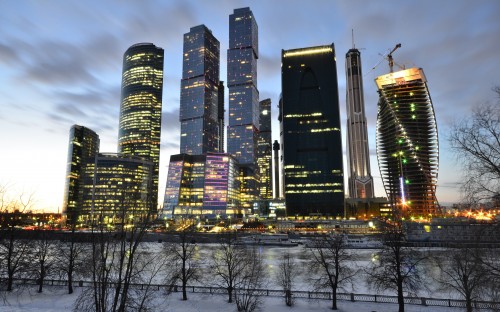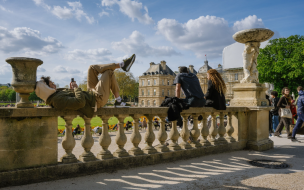A struggling economy, the cult of Vladimir Putin, the crisis in Ukraine, an Olympics doping scandal, and alleged interference in a presidential campaign, are echoes of the country’s Soviet past.
Still, business education in Russia has potential, and a number of Western European business schools have looked to tap into a young but developing market.
Offered in partnership with the Institute of Business Studies Moscow (IBS), Antwerp Management School’s Executive MBA program runs parallel in Belgium and Russia.
Local competitors have withdrawn from Russia in recent years. The full-time MBA format in Russia is all but extinct. But Antwerp’s EMBA director Peter Rafferty, thinks the market still has a lot to offer.
“A lot of the people in the West are turning their backs on Russia,” he says. “We’ve been in Russia for 17 years and been very successful.
“Russia is not a big amorphous blob led by Putin,” he continues. “The students we deal with are real people with real ambitions. They want to create business and move business forward.”
Antwerp’s ties with Russia extend back to the late 1990s. The Antwerp-IBS EMBA was one of the first collaborations of its kind. Since then, many Western European business schools have followed suit.
Copenhagen Business School has Russian partners based in Moscow and Saint Petersburg. The world’s first business school, ESCP Europe, is partnered with Moscow’s Higher School of Economics.
Studying in Russia offers students better access to emerging markets in Central Asia. Maastricht School of Management bypassed Russia to form partnerships with new institutions in Azerbaijan and Kazakhstan.
While the political and economic climate in Russia can be a challenge, Peter remains positive.
“The worst of the economic downturns has passed,” he says. “And the embargoes that have been imposed for political reasons following Crimea and Ukraine, are encouraging people to innovate.
“We see examples of import substitution - in cheese manufacturing and food processing - which is something that this economy didn’t have to do when it was rich and importing stuff from the West. Now, we’re eating camembert made in Russia!
“If you’re trying to diversify and build your resume, or if you’re looking for business opportunities that haven’t been identified or properly exploited,” he continues. “Russia offers both.”
The Antwerp-IBS EMBA is the only EMBA program in Russia listed in the Financial Times’ EMBA global top 100. But only Antwerp is mentioned in the rankings.
“The international community don’t see the best of Russian business schools,” explains IBS EMBA director Zaitsev Michael. “Like us, there are several schools in Russia with AMBA-accreditation, but to get into the Financial Times ranking you have to be accredited by AACSB.”
To gain AACSB accreditation, business schools need to prove themselves across a range of criteria including international research publications, graduates’ financial prospects, and assurance of a learning and career development.
“Our institution is the first in Russia to have started this process,” Zaitsev continues. “It’s difficult, but in five years we will be there.”
IBS offers a number of EMBA programs in different locations in Russia. The classes are almost entirely composed of Russians, or professionals from former Soviet republics like Ukraine and Kazakhstan. Around 20% of students are women. 70% work for international companies in Russia.
While Executive MBA and part-time courses are gaining strength, the value of a full-time MBA in Russia is small. Elena Fedorova left Russia to pursue a full-time MBA at London’s Cass Business School.
“Initially, I considered studying an MBA in Russia because it could have given me more flexibility in terms of combining studies with work and family life, plus it is much more affordable.
“However, an MBA in Russia does not add any value if you want to get a job abroad,” she explains. “It can be a very good investment. But only for someone who is engaged in business in Russia and doesn’t plan to leave.”
Valeria Pavlyukovskaya, who relocated from Russia to Switzerland for an MBA at IMD, agrees. After graduation, she went on to work as MBA director at the Moscow School of Management Skolkovo.
There, she redesigned the school’s full-time MBA program into a part-time, modular format course, and application numbers doubled.
“Full-time MBA programs in Russia don’t work at all,” she says. “People who speak English well prefer to go for a full-time MBA abroad. There are no foreigners studying at Skolovo.”
Business education in Russia is still in its infancy. International students in Russia are in a minority. And many of the country’s brightest young talents are leaving to study and gain better international exposure abroad. But Zaitsev is looking to the future.
“No matter what the Western press write about corruption in Russia and the absence of possibilities to make business, business education will continue to develop,” he says.
“Yes, it’s not as easy to do business here as it is in the US. But even Russian officials are beginning to understand that businessmen are not wolves they have to kill, but cows they have to milk!”
RECAPTHA :
14
0f
17
f9








